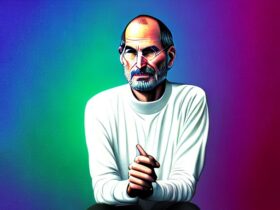The end of an era is here. After 24 years, Leif Brooks, founder of Omegle, is pulling the plug on his iconic chat platform.
Whereas WhatsApp, which recently introduced its profiles feature, is primarily for staying in touch with acquaintances, Omegle is primarily about connecting with strangers. Or turned, because for an obvious reason, the platform is disappearing from the Internet.
The end of Omegle
Ah, the good old days. Those who used to be really bored decided to go to Omegle and talk to strange people. Aside from the large number of eggplants that passed in the process, it was genuinely quite a fun idea.
In 2009, eighteen-year-old student Leif Brooks founded Omegle. The concept was the same back then. The success a little less so. But over the years, his chat platform grew into an Internet icon. Just last month, for example, it had 50 million visitors.
![]()
Omegle in a nutshell
Omegle was an online platform for random video and text chats with strangers. Users were anonymously matched and could have conversations without registration. The system randomly selected two users, making each interaction unique. Unfortunately, that anonymity also created unwanted behavior.
Omegle has received much criticism recently because it was a breeding ground for many shady activities during the corona pandemic. By his own account, Brooks tried to take measures for that, but in the end that turned out to make no difference.
Obscure business
“As much as I wish circumstances were different, the stress and expense of running Omegle were too much,” Brooks writes in a blog on the site. “Frankly, I don’t want to have a heart attack when I’m in my 30s.”
Although the original intent of Omegle was probably to meet new people, research by the BBC revealed that the service had a considerable dark side. According to the medium, there are 50 known cases of child abuse alone. Others say that is even just the tip of the iceberg. Due to the lack of registration and control, malicious people could easily use the platform.
Brooks himself is especially disappointed in how the use of the Internet has changed, he let it be known in his post. “I fear that unless the tide turns quickly, the Internet I fell in love with may cease to exist. Instead, we will have something closer to a souped-up version of TV. Largely focused on passive consumption and with much less opportunity for real human connection.”

































